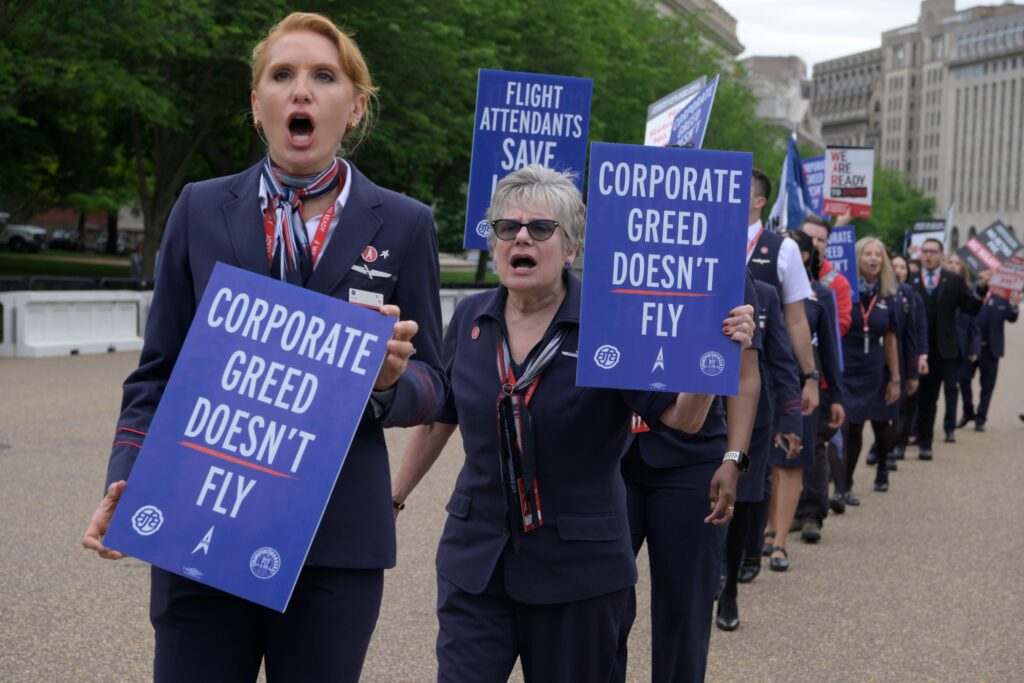Two weeks of intensive negotiations between American Airlines and the flight attendants’ union to avoid a massive strike have failed, the Association of Professional Flight Attendants (APFA) announced on Thursday.
The union said it no longer believed federal mediators would call the two sides back to the negotiating table before making their decision on whether negotiations had reached an impasse.
If an impasse occurs, mediators will likely give both sides a 30-day cooling-off period. During this time, the two sides can continue to work toward an agreement on the collective bargaining agreement. Importantly, however, flight attendants will be allowed to strike after the 30-day period.
This decision is made by the National Mediation Board, an independent federal agency that oversees labor relations in the railroad and airline industries.
Although the NMB is supposedly independent, its board members are appointed by the president and are well aware of the political consequences of releasing more than 25,000 flight attendants for a strike.
Still, with the presidential election looming, the likelihood of the NMB finally declaring a stalemate in the ongoing dispute at American Airlines has never been higher, and passengers must now expect their summer travel plans to be in jeopardy.
“All American Airlines flight attendants should prepare for an impending strike,” the union warned its members on Thursday. “Management has had every opportunity to reach an agreement during the last six weeks of mediation talks,” the memo continued.
During the last few weeks of intense negotiations, progress has been made on a number of key areas where the two sides had disagreed, but the union says it is unable to agree on a starting wage for newly hired cabin crew, who often struggle to make ends meet.
Another point of contention is the issue of back pay, as flight attendants have not received a raise since 2019, when their contract became amendable. The union wants AA to follow the example of Southwest Airlines, which offered back pay in its last contract, but no such agreement has been reached so far.
In a sign of how desperate the Biden administration is to avoid an airline strike this summer, Transportation Secretary Pete Buttigieg met with union representatives last week ahead of federal mediation, and administration officials remained in contact with both parties throughout.
The union first requested a strike permit last November, but the NMB immediately rejected it. A second request was made just weeks later, and the NMB has been holding back on this decision ever since, desperately trying to get the two sides to reach a compromise through mediation.
The unions complain that it is very difficult for airline workers to actually take part in strikes. This leads to employers dragging out negotiations because the risk of an actual strike is so low.
Separately, the NMB has called on Alaska Airlines and the flight attendants’ union to hold another day of government-mediated negotiations to negotiate their own collective agreement.




